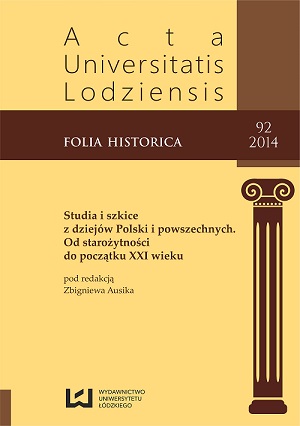Internowanie oraz proces żołnierzy legionowych w Marmaros-Sziget w roku 1918 – we wspomnieniach księdza pułkownika Józefa Panasia – kapelana II Brygady Legionów Polskich
DOI:
https://doi.org/10.18778/0208-6050.92.07Abstrakt
The article aims to show the history of the internment and process in Marmaros-Sziget (8 June – 2 October 1918) the then Kingdom of Hungary. These events are presented trough the eyes chaplain Józefa Panasia, who was also one of the main accused in the process. Internment legionnaires and the process was a consequence of the battle of Rarańcza, which took place in the night of 15 to 16 February 1918. The cause of this battle was the conclusion of the Treatyof Brest – February 9, 1918 under which the German Empire and the Austro-Hungarian Empire gave Ukraine Chelm and Podlasie part. Officers and soldiers of the legion, who passed on the other side of the front were disarmed and later arrested by the Austrian headquarters. In contrast brave and uncompromising chaplain J. Panaś played in this endeavor major role.
Pobrania
Pobrania
Opublikowane
Jak cytować
Numer
Dział
Licencja

Utwór dostępny jest na licencji Creative Commons Uznanie autorstwa – Użycie niekomercyjne – Bez utworów zależnych 4.0 Międzynarodowe.











